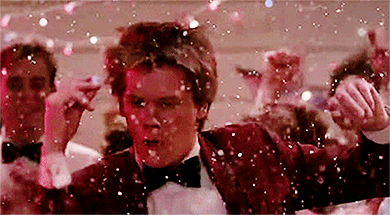Publication pending: Eight years later, I just finished writing my first book

Eight years ago, I began an endeavor that I thought would take up to 12 months to complete: writing my first book. In reality, it took nearly eight full years.
In any case, I’m happy to report that I finished the 12 chapter non-fiction and short self-help book not 20 minutes ago. I’m proud of what I wrote and can’t wait to share it with the world soon after vetting it with editors, agents, and publishers.
Fun fact: it took my seven years to write the first 40% of the book and just a month to write the remaining 60%—because writer’s block.
As a teaser, I’ve included the opening chapter here. Hope you enjoy it and share this post with any you feel my be interested in what I have to say.
Prologue: Why you should read this book
I wouldn’t be what I am today without the Internet: a work-from-home husband and father who enjoys greater flexibility than 99% of the rest of the world. Since discovering the Internet as a teenager of the ‘90s, I have educated myself—both formally and informally—outfitted myself, informed myself, entertained myself, bettered myself, and employed myself with it.In short, I owe the Internet and its pioneers a lot. It changed my life and continues to do so, as does my iPhone, Kindle, or whatever latest and greatest whatchamacallit I’m late to adopt (stay tuned for why late adopting is better than early adopting).
At the same time, I refuse to spend my entire day online. In many ways, but not always, I view the Internet as my cubicle. And why on earth would anyone want to stay in a cubicle all day? Especially when there’s better things to experience offline—the very things the online world can only simulate.
The answer seems obvious and yet as the Internet continues to play an increasing role in our lives, few have found it. And rather than being just benefactors of connected devices like smartphones, we have become slaves to them at an alarming rate.
For example, 78 percent of those who have a mobile device admittedly stay “married to the office” while on vacation. More than half of all smartphone users say they keep their device nearby while sleeping so they can hear when a new message arrives.
Relationships and marriages are being strained when one (or both) parties are more concerned with what’s happening online than what’s happening right in front of them. At the dinner table, for example, or during what should have been a romantic night on the town.
Worse still, breakfast is no longer the first stop in the morning, according to the New York Times. White collared America, it seems, prefers a digital shot of emails, tweets, and wall updates over real-life eggs and hash browns. Not unlike substance junkies.
Our generation even holds the pathetic distinction of rearing smartphone orphans, which is mind-numbingly ironic. The very devices that were meant to free us from the office to enjoy more time with family, peers, and children are in fact making us negligent parents, lovers, and friends.In short, our wired lives are whack. Not just regular type, but wiggety whack. We have become zombies to modern technology.
If you’re reading this, chances are you’ve felt out of control at some point with your relationship to email, web, Facebook, messaging apps, Twitter, updates, YouTube, and smartphones to name a few. And while I’m certainly not the first to endorse a balanced online lifestyle, I’m confident I’m one of the first to spell it out.
What you are about to read will not encourage you to write off technology on the whole, buy a year’s supply of MREs and take cover in the mountains. But it will teach you how to identify technology that works and technology that doesn’t. Not only that, it will help you take control of the more addicting devices, offer advice on rediscovering nights and weekends in addition to post-online anxiety disorder, and provide sustainable strategies to living large on a low-caloric—but still capable of getting you ahead—technology diet.
Having lived for years on both sides of the track, I promise you the latter is indescribably better than the former.
2 Comments
The world has changed in 8 years.

Congrats on finishing the book!! I can’t wait to read it. Been checking in on status over the years and thought you abandoned ship on the project. Balancing both sides of the track is not easy…looking forward to your wisdom on the topic.